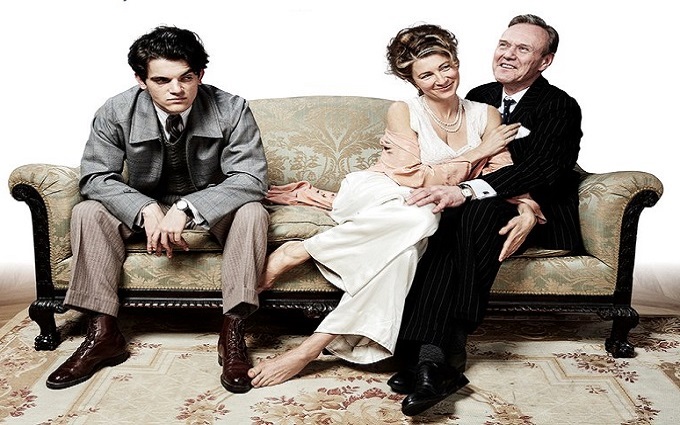Love In Idleness Review

The Plot
As World War 2 draws to a close the domestic bliss between a millionaire Cabinet Minister and a widowed housewife is thrown into turmoil when her young son returns home from Canada. The situation triggers a series of fraught and witty exchanges about politics, love and the class system.
The Good
Though set during the dying stages of World War Two the emotional core of Rattigan’s tale of family drama and love are all immediately timeless and deeply current. In particular the awkward tensions in this newfound family are used to play out the angry philosophical frictions between far left and right wing politics. It’s a happy irony of history repeating itself that those economic and social backdrops fit almost perfectly with the news headlines of present day. Armed with this the revived production feels oddly more contemporary than ever.
Love In Idleness is built around charismatic strong performances from its three leads. Eve Best is a breezy delight as the middle class housewife revelling in her newfound upward social mobility and genuine love. Edward Bluemel is perfectly sulky as the adolescent son struggling to contain his immature contempt for the upper class and his mother’s newfound romance. Anthony Head is also typically well-polished as Sir John the successful tycoon and reluctant politician trying to stay calm in the face of a greedy former wife, wartime pressures and a genuine threat to his romantic happiness.
Special mention should also go to an alluring Charlotte Spencer, who shamelessly steals scenes as shameless Lady Fletcher, Sir John’s soon to be ex-wife. Armed with slinky dresses, flamboyant hats and ostentatious fur stoles she is a fun catalyst for dramatics.
Rattigan’s two act piece has generous amounts of fun by sparring its core cast against one another. Eve Best and Anthony Head capture perfectly the uninhibited honesty and comfortable affection amongst a mature couple learning from their youthful mistakes. By amusing contrast Bluemel’s melodramatic antics are a fitting caricature of misplaced teenage angst. Rattigan’s skilful work in gradually reconciling the two with laughter rather than genuinely abrasive squabbling is warmly enjoyable.
The combination of the cast’s readily available charm, Rattigan’s nuanced writing and Trevor Nunn’s expert direction helps to deliver a production that delights audiences with a rich blend of gentle comedy, perceptive social commentary and sincere satisfying romance.
The Bad
Those accustomed to the more typically outrageous comedy styles of more recent West End hits like Book of Mormon may find Rattigan’s 1940’s wit a little tame by comparison. However a steady stream of audience laughter on opening night illustrates the timeless appeal of good natured and well-crafted banter. Likewise a generous run time of 2 hours and 45 minutes is certainly value for money, though overly harsh critics might feel it lends for a more languid pace as the play works through a series of fairly simple dilemmas.
The Ugly Truth
Love In Idleness is a welcome slice of charmingly composed and good natured British comedy that feels timely and relevant in spite of its period setting. An outstanding ensemble cast breathe fresh life into Rattigan’s fine writing to deliver a triumphant West End revival.
Review by Russell Nelson